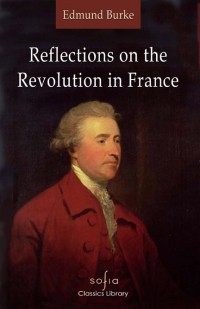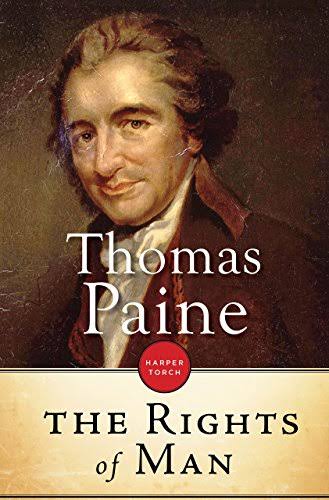The French Revolution, a significant historical event that started in 1789, was a turning point in the history of France and Europe. The Revolution was triggered by the inequalities and injustices prevalent in French society, which had been exacerbated by years of war, famine, and economic distress. The Revolution aimed to establish a more democratic and egalitarian society, where individual liberties would be respected and protected.
The Revolution was a subject of great debate among intellectuals of the time, and two of the most prominent figures were Edmund Burke and Thomas Paine. Burke was a conservative British politician and philosopher, while Paine was an American revolutionary and writer. Both men wrote extensively about the Revolution, but their views were vastly different.
In this article, we will examine the contrasting views of Burke and Paine on the French Revolution. We will analyze their works, “Reflection on the Revolution in France” and “Rights of Man”, respectively, to understand their perspectives on this significant historical event.
Background of the French Revolution
The French Revolution was a series of events that began in 1789 and lasted for ten years. It was a time of political and social upheaval in France, as the country underwent significant changes in its political system, economy, and society.
The Revolution was triggered by the French people’s discontent with the monarchy’s absolute power, the feudal system, and the inequalities that existed in French society. The French people demanded a more democratic system of government, where individual liberties would be protected, and the power would be decentralized.
The Revolution began with the storming of the Bastille, a symbol of the monarchy’s tyranny, and the establishment of a National Assembly. The National Assembly was tasked with drafting a new constitution that would reflect the people’s aspirations for a more democratic society.
The Revolution went through several phases, each characterized by its own set of events and changes. The Reign of Terror, which began in 1793, was one of the bloodiest periods of the Revolution, where thousands of people were executed under the guillotine.
The Revolution ended in 1799, with the rise of Napoleon Bonaparte to power, who established himself as the First Consul of France. The Revolution had a significant impact not only on French society but also on European and world history.
Edmund Burke’s “Reflection on the Revolution in France”
Edmund Burke was a conservative British philosopher and politician, who is best known for his work, “Reflection on the Revolution in France”. Burke was a staunch opponent of the Revolution and believed that it would lead to chaos and anarchy.

In “Reflection on the Revolution in France”, Burke criticized the Revolution for its violent and bloody nature. He argued that the Revolution had destroyed the existing social order and had replaced it with a system that was chaotic and unpredictable.
Burke also criticized the Revolution for its disregard for tradition and history. He believed that the French people had destroyed their past and had replaced it with a system that was based on abstract principles, such as liberty, equality, and fraternity.
Burke argued that the Revolution had created a dangerous precedent that would inspire other nations to rebel against their governments. He believed that the Revolution would lead to the destabilization of Europe and the eventual collapse of Western civilization.
Thomas Paine’s “Rights of Man”
Thomas Paine was an American revolutionary and writer, who is best known for his work, “Rights of Man”. Paine was a strong supporter of the French Revolution and believed that it was necessary to establish a more democratic and egalitarian society in France.

In “Rights of Man”, Paine argued that the French Revolution was a necessary step towards achieving liberty and equality. He believed that the French people had the right to overthrow a government that did not represent their interests and to establish a new system of government that respected individual rights and freedoms.
Paine also criticized the existing social order in France, which he believed was based on privilege and inequality. He argued that the existing system favored the nobility and the clergy at the expense of the common people, and that this had to change.
Paine’s central argument in “Rights of Man” was that all people, regardless of their social status or wealth, were entitled to certain fundamental rights, such as the right to free speech, the right to a fair trial, and the right to participate in government. He believed that these rights were essential for the establishment of a just and democratic society.
Comparison of Burke and Paine’s views on the French Revolution
Burke and Paine had vastly different views on the French Revolution. Burke was a conservative who believed in the importance of tradition and stability, while Paine was a revolutionary who believed in the importance of individual rights and freedoms.
Burke saw the Revolution as a threat to the existing social order and believed that it would lead to chaos and anarchy. He believed that the Revolution was based on abstract principles that had no connection to the realities of French society.
Paine, on the other hand, saw the Revolution as a necessary step towards achieving liberty and equality. He believed that the Revolution was based on the fundamental principles of human rights and that it was necessary to establish a new system of government that respected these rights.
Burke and Paine’s views on the Revolution were also shaped by their respective backgrounds and experiences. Burke was a member of the British aristocracy, while Paine was a self-educated writer and revolutionary.
Burke’s experience as a member of the aristocracy gave him a particular perspective on the Revolution, which he saw as a threat to the existing social order. Paine’s experience as a self-educated writer gave him a more radical perspective on the Revolution, which he saw as a necessary step towards achieving individual liberty and equality.
Relevance of Burke and Paine’s views in contemporary times
The views of Burke and Paine on the French Revolution continue to be relevant in contemporary times, particularly in the context of debates about the role of government, individual rights, and the limits of democracy.
Burke’s emphasis on tradition and stability continues to resonate with conservatives who believe in the importance of preserving the existing social order. Burke’s critique of the Revolution’s emphasis on abstract principles also resonates with those who believe in the importance of practical solutions to social and political problems.
Paine’s emphasis on individual rights and freedoms continues to resonate with liberals and progressives who believe in the importance of expanding individual rights and freedoms. Paine’s critique of the existing social order also resonates with those who believe in the importance of social justice and equality.
Conclusion
In conclusion, the French Revolution was a significant historical event that continues to inspire debates and discussions about the role of government, individual rights, and the limits of democracy. Burke and Paine’s contrasting views on the Revolution offer valuable insights into these debates and continue to be relevant in contemporary times. While Burke emphasized tradition and stability, Paine emphasized individual rights and freedoms, and their differing perspectives continue to shape our understanding of the Revolution and its legacy.
Bibliography
- Burke, E. (1790). Reflections on the Revolution in France. London: J. Dodsley.
- Paine, T. (1791). “Rights of Man”. London: J.S. Jordan.
- Dunn, J. (1973). The Political Thought of John Locke: An Historical Account of the Argument of the ‘Two Treatises of Government’. Cambridge: Cambridge University Press.
- Hampsher-Monk, I. (1992). A History of Modern Political Thought. Oxford: Blackwell.
- Himmelfarb, G. (1994). On Looking into the Abyss: Untimely Thoughts on Culture and Society. New York: Vintage Books.
- Kramnick, I. (ed.). (1987). The Portable Enlightenment Reader. New York: Penguin Books.
- O’Brien, C. (1994). Edmund Burke: His Political Philosophy. London: George Allen & Unwin.
- Pocock, J. (1985). Virtue, Commerce, and History: Essays on Political Thought and History, Chiefly in the Eighteenth Century. Cambridge: Cambridge University Press.
- Wood, G. (1991). The Radicalism of the American Revolution. New York: Vintage Books.
- Zuckert, M. (1996). The Natural Rights Republic: Studies in the Foundation of the American Political Tradition. Notre Dame: University of Notre Dame Press.



 For all latest articles, follow on Google News
For all latest articles, follow on Google News